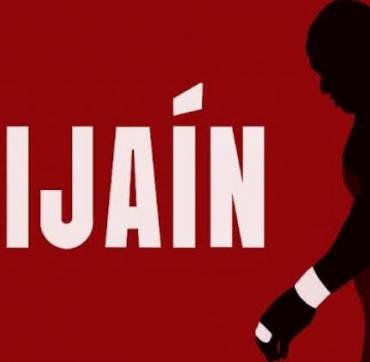It’s not just Trump, the EU is also waging an anti-migration crusade
especiales

For months now, US President Donald Trump’s administration has been leading a well-publicised crackdown on migration. The United States Department of Homeland Security (DHS) and Immigration and Customs Enforcement (ICE) have turned deportations into media spectacles, posting videos of chained deportees and releasing their names to spread fear.
Within the past few weeks, the Trump administration has expanded its deportation surge to include even foreign nationals with legal status in the country, including academics. The president has pledged to deport 11 million people – doubling the number removed under President Joe Biden and even surpassing President Barack Obama’s two terms, during which 5.3 million people were deported.
While the world’s attention is focusing on Trump’s anti-migration spectacle, the European Union is quietly carrying out its own crackdown. Its policies are far less visible, yet they are just as ruthless.
In the first nine months of 2024, EU states issued 327,880 expulsion orders, with 27,740 people forcibly removed between July and September. Deportations have intensified, as EU states have begun implementing the new Pact on Migration and Asylum, which was passed in December 2023 and entered into force in June 2024.
Under its provisions, EU members are fast-tracking removals, expanding detention centres, and strengthening cooperation with third countries to facilitate deportations. However, it is not only member states that will be part of this.
Balkan countries that have to fulfill certain criteria to become part of the EU, through the EU accession process, are effectively being turned into a border zone for the EU. Unlike EU member states, Balkan candidate states had no say in shaping this pact, yet they are forced to implement it and abide by what can only be described as colonial blackmail.
Most recently, the EU made its expectations clear at the December EU-Western Balkans Summit, declaring that, “We need to strengthen our cooperation and strategic partnerships in migration management, which is a shared challenge and responsibility and a key priority.”
This is part of the EU’s broader strategy to externalise migration control and fortify its borders, but also to move away from any responsibility and accountability for violations of human rights and transfer them on to third countries.
A key part of this strategy is the creation of “return hubs” close to and outside the EU’s borders – places where unwanted people can be warehoused. This model, championed by European Commission President Ursula von der Leyen, is already in motion. People are being sent to the Balkans, Turkey and North Africa. Frontex, the EU’s border agency, and the International Organization for Migration (IOM) play key roles in enforcing these removals.
In practice, we can see what that looks like in Croatia, the EU member state bordering two Balkan non-member states – Bosnia and Herzegovina and Serbia. Croatia has played an important role in maintaining the EU border regime by normalising pushbacks, which over the years caused numerous deaths and injuries and represented a massive violation of fundamental human rights. Instead of establishing responsibility for this, the EU rewarded Croatia – along with Bulgaria and Romania – by allowing them to join the Schengen Agreement, which abolishes border control between member states.
The EU has also strengthened readmission agreements – bilateral deals that allow EU states to send people back to their country of origin or country of transit, pushing them to the edge of the EU or outside its borders, basically to offload migrants. As a result, the Balkans have become a dumping ground for people the EU wants to expel.
Croatian authorities have not published any reports on migration control since 2020, but Minister of Interior Davor Bozinovic said in January that border police prevented 71,000 “illegal entries” in 2024. The Bosnian Office for Foreigners reported that in 2023, Croatian authorities returned 4,265 people into Bosnian territory. Bosnia, with financial aid from the EU, removed 893 people to their countries of origin or countries that accepted them through interstate agreements, while 96 migrants left through the IOM’s controversial “voluntary return” programme, which scholar Jean-Pierre Gauci has described as “disguised deportation”.














Add new comment